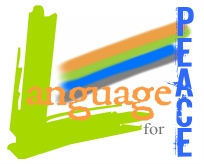I read an article recently discussing the idea that “huh?” in its many different forms is a universal word. It it is the same category in every language, occurs in similar places grammatically, and often has a similar sound too. We can make it understood in any language that we do not understand, whether we know that language or not.
The idea was expanded further in another article about the idea of language correction in general. Languages vary greatly, and have different features in relation to the culture that speaks them. Whether language creates culture or culture creates language is another discussion, but which ever comes first, we can see those differences. Cultures that care deeply about social hierarchy might have different verb conjugations to use depending on who you’re talking to; cultures that have a strong focus on the present and day-to-day might have less time related words; etc. But one feature we all share is language for “getting back on track” when a misunderstanding has occurred in conversation.
According to the article, “[in a] survey of 12 languages spoken on five continents — they ask for clarification about every 90 seconds.” Every minute and a half, we are misunderstanding each other and needing to check in.
My first reaction was, “Well, that’s rather inefficient, isn’t it?” Language should connect us, shouldn’t it, not leave us unsure of what’s going on?
But here’s my second thought, and the one I keep pondering: those moments where we don’t understand and have to “check in” do connect us, and who knows–perhaps more deeply than if we didn’t have them. They are small moments of humility, of admitting we don’t know, followed by the graciousness of someone inviting us back into understanding by clarifying. It’s so quick and normal that we don’t even feel what’s going on. It’s a mini “ask-and- answer” for connection.
How incredible to really take hold of the idea of this universal capacity of language and conversation to correct, to facilitate understanding when misunderstanding has taken place. When the “flow is interrupted,” we’re capable of “getting back on track.” We’re prepared; our languages speak the truth to us: misunderstanding isn’t something to be feared, it’s a natural part of living with others; in fact, it’s so natural that we have specific vocabulary, grammar, and phrases to use when it happens.
With this in mind, misunderstanding isn’t so scary! And, to take it a step further, if we are able to clarify and regroup after misunderstanding in linguistic conversation, aren’t we capable of it in the way we live? How can we use “huh?” to good use in the “conversation” we have with each other in the way we treat each other, and in the way we approach conflict? Because that’s what so much of conflict is: misunderstanding and assumptions based on incorrect or missed information. So many times I don’t even take the time to really ask, “huh?” when I am having a hard time understanding someone’s behavior. I assume I know what is going on and then leap to a judgement. It feels easier to do this that to take the time to truly make sure I’m understanding. What a challenge!
Some questions to ponder:
- How can we use “huh?” in the way we live and have conversation in ways that connect us more deeply?
- How can we as language teachers make sure that our students are equipped with the language skills (vocabulary, grammar, phrases) they need to ask for clarification and understand when people are asking it of them?
- How can we model that misunderstanding is not something to be feared, but seen as a chance to connect in the clarification process?

Discussion
No comments yet.